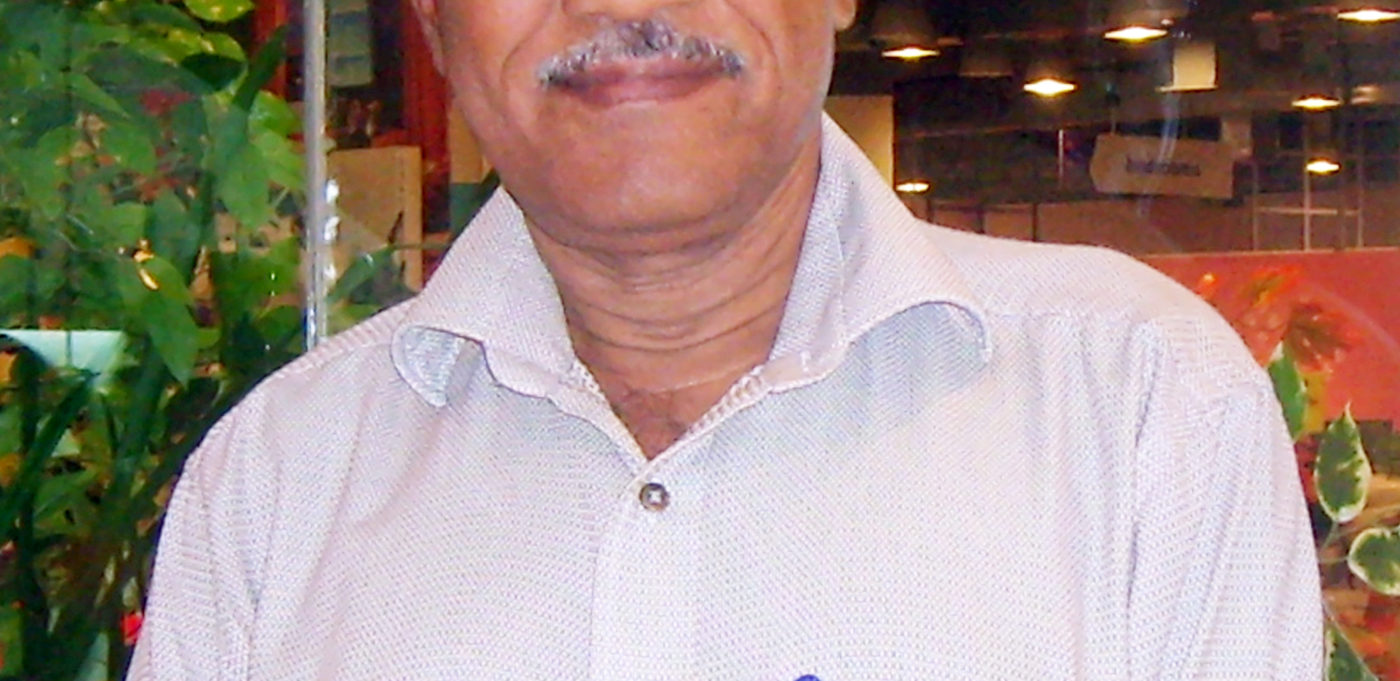Konkani literature has always moved ahead as a part of the Konkani linguistic movement. Despite being busy with legal and political agitations, Konkani writers have been successful in producing some amazing works. And these works were written not just in Goa or by Goans per se, but everyone who spoke and wrote Konkani. One such man who was born in the serene village of Majale near Karwar on the border of Goa and Karnataka embarked on a journey from one language to another. And today Konkani people are proud of the accolades that he has received. Amongst many others, Mahabaleshwar Sail has recently been honoured with the prestigious Saraswati Samman.
Saraswati Samman, an honour named after the goddess of wisdom is an annual award for outstanding prose or poetry literary works in any of the 22 Indian languages listed in Schedule VIII of the Constitution of India. It was started by K. K. Birla Foundation in the year 1991. Since then various literary legends across the languages have received this award. Konkani has been a step behind in the national foray because of scarcity in translations of Konkani works. Fortunately Sail’s original Konkani novel Hawthan was translated by renowned translator Vidya Pai as Kiln.
Kiln is a tale of the slowly vanishing profession of pottery. It brings forth the life and travails of potters as they struggle with the outcomes of globalization. Since Sail was born in a village that was a hub of alltraditional professions, his literature has always been a reflection of rural life. Having lived amid the villagers, Sail can describe these realities in a very practical yet emotional manner. A short conversation with Sail on receiving this prestigious honour helped us in knowing the otherwise very silent and calm writer a little better. When asked about his views about the overall Konkani movement Sail said that according to him the Konkani movement began in the 70’s in a real sense. He opines that most of the time got wasted in asserting the unique identity of Konkani. But he is very optimistic when he talks about the development of Konkani movement as well as literature. He feels that no other language has developed so rapidly the way Konkani has and is still developing. Yet, as a senior writer Sail feels that Konkani still needs to have better works of literature. “More national accolades should come to this language,” he says. Mahabaleshwar Sail also feels that younger writers should dive into new genres. He feels that the new generation isn’t very serious and dedicated, rather he calls them ‘disillusioned’.
A writer’s growth depends on criticism, which is not seen much in Konkani circles. When asked about it, Sail said that “Konkani writers have been busy in writing creative works more rather than doing critical works. And this needs to change.” Yet another aspect when it comes to getting national recognition is translation of major works. Mahabaleshwar Sail proudly says that all his five books have been translated from Konkani to English, all by Vidya Pai. But he also feels that there is still more to be done. Especially in Goa he says there are very few individuals who take up translations, and this needs to increase significantly for Konkani literature to cross the boundaries of region.
Speaking passionately about Konkani, Sail also revealed that he actually began his literary career with Marathi writings. “I wanted to express my experiences. I did that in Marathi but I wasn’t satisfied. I was constantly searching for my mother tongue,” he said.
Fortunately Sail happened to meet Damodar Mauzo, another noted writer of Konkani in Mauzo’s village, Majorda. Through Mauzo Sail was exposed to the tremendous and passionate work that was going on for Konkani. That’s when Sail says he realized that this was the language he was searching for all this while, this was the language in which he needed to write to feel satisfied in the truest sense.
“I have written more and have participated less in the on-the-street movement of Konkani,” the writer says. Mahabaleshwar Sail was also in the military, and hence couldn’t dedicate himself completely in the movement. He also says he entered quite late into the realms of the Konkani movement. Despite all that, Sail has some of the best short story collections and novels to his credit. His works have reflected the angst of communities on the borders of Goa and Karnataka, the experiences of military life and overall human tendencies. Sail’s previous novel based on the Inquisition Yug Savaar now translated as ‘Age of Frenzy’ was shortlisted twice for Saraswati Samman. But it was the Kiln that had the fortune of getting the dedicated writer this prestigious honour. Coming from another state, Sail now resides in Goa – the land where he found an answer to his quest, where he discovered himself.
- Tanvi Bambolkar


























